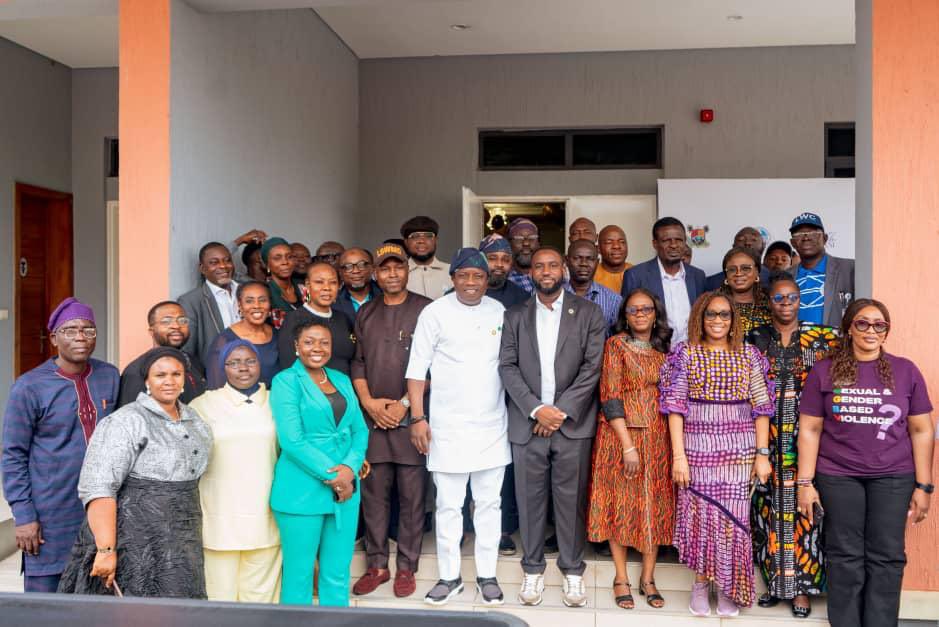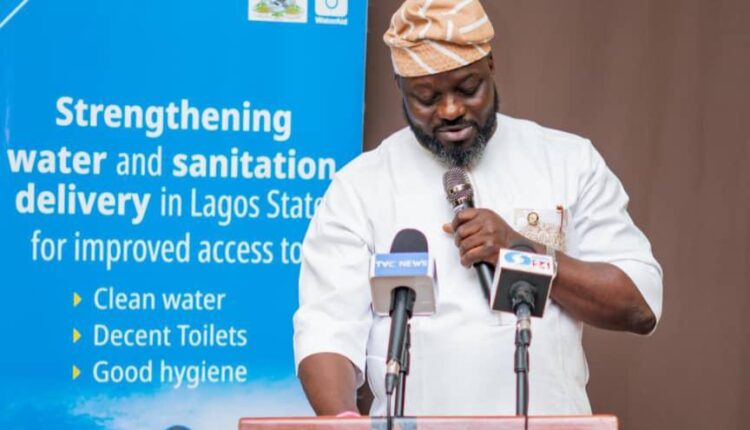
… Calls For Investments Towards The Upgrade Of Some Of Its Mini, Micro Waterworks


In a decisive move to attract investment to increase access to a safe and reliable water supply to Lagosians, the Lagos State Government has convened a high-level Stakeholders’ Engagement on the Pilot Public-Private Partnership (PPP) for the Lagos Water Corporation, to explore innovative, technology-driven approaches to improving water service delivery.
Convened under the theme: “Attracting Investment for Improved Water Supply in Lagos State through Public-Private Partnership”, the engagement brought together a cross-section of stakeholders, including sector experts, community leaders, private investors, CSO partners, and development partners.
At the core of the two-day event organised by the Lagos Water Corporation with the support of WaterAid, Nigeria, was the Government’s official invitation to all stakeholders to inform them of the government’s plans of attracting investment in the water sector through public-private partnerships to increase water service delivery in Lagos.
While delivering a welcome address, the Special Adviser, Ministry of the Environment and Water Resources, Mr. Rotimi Akodu, highlighted that the initiative is a critical step in addressing the state’s growing water demand, driven by rapid urbanisation and population growth. Mr. Akodu pointed out that the initiative reflects the State’s recognition that achieving universal access to potable water requires both substantial capital investment and operational efficiency – elements that can be enhanced through strategic private sector collaboration.
The PS Office of Drainage Services and Water Resources, Engr. Mahamood Adegbite, in his speech, stressed that Lagos has made commendable progress in expanding water infrastructure, but the scale of current challenges, from ageing facilities to the impact of climate change, demands innovative partnerships that prioritise sustainability, resilience, and accountability.
According to him, the State Government’s vision is clear – to guarantee uninterrupted access to clean and safe water for all Lagosians. This partnership model ensures that the infrastructure we build today will serve future generations. We urge stakeholders to support and embrace this new structure for the greater good of our citizens.
This was further highlighted by the PS, Office of Environmental Services, Dr. Omobolaji Gaji, as he mentioned that with the shortage in funding, governments are struggling with compelling priorities and a reduction in foreign support, which has necessitated the government’s need to be innovative in funding this very important lifeline resource. Therefore, there is no better time to partner with the private sector to bring in funding and to improve water services than now.
Speaking at the event, the Managing Director of Lagos Water Corporation, Engr. Mukhtaar Tijani reiterated the State Government’s vision to transform the water sector into a modern, efficient, and sustainable system capable of meeting the current and future needs of residents, supporting economic growth, and aligning with global best practices in water resource management.
Engr. Mukhtaar noted that the PPP framework offers a unique opportunity to combine public oversight with private sector innovation, operational efficiency, and investment capacity to boost production, reduce water losses, and ensure efficient distribution to underserved communities.
He emphasised that the PPP initiative is not an attempt to privatise water resources, but rather a strategic collaboration to improve service quality, expand coverage, and ensure the financial viability of operations.
“The decision to pilot the model through selected mini and micro waterworks is guided by the need to leverage private sector expertise, innovation, and funding to complement government investments, ensuring that water facilities are not only rehabilitated but also maintained to the highest standards. This phased approach is informed by a broader reform agenda that will place Lagos on a clear path toward achieving Sustainable Development Goal 6 – Clean Water and Sanitation for All”, he said.
Reeling out the overview of the Pilot Public-Private Partnership for the Lagos Water Corporation, the Managing Director explained that the initiative represents a crucial step in the State’s broader strategy to modernise public utilities, safeguard public health, and stimulate economic growth.
While assuring that the State is committed to transparent procurement processes and robust regulatory oversight to safeguard public interest and fostering a commercially attractive investment climate, Engr. Tijani underscored that the PPP structure is deliberately designed to boost operational efficiency, minimise system losses, and guarantee equitable distribution of water resources across all localities, with particular attention to underserved and hard-to-reach communities.
The Managing Director commended the efforts of WaterAid Nigeria for its commitment to supporting the Lagos Water Corporation to improve urban water supply in Lagos State.
The Country Director of WaterAid Nigeria, Evelyn Mere, had earlier, in her goodwill message at the gathering, called on the State Government to scale up the Akilo water scheme management model that is aimed at achieving sustainable urban water supply. She enjoined the State Government to create an enabling environment built on an effective and sustainable legal and regulatory framework to assure investors of their Return on Investment (ROI).
Stakeholders at the meeting lauded the State Government’s strategic drive to provide essential water resources and its openness in involving communities and private partners in decision-making.
The Lagos State Government reaffirms its dedication to delivering quality water to every household, and, with the active participation of stakeholders and partners, is confident that the State will achieve a future of sustainable, reliable and universally accessible water supply.
By the close of the engagement, consensus emerged on the need for a phased, evidence-based implementation of the PPP model, underpinned by robust performance monitoring, environmental safeguards, and continuous dialogue with stakeholders.


